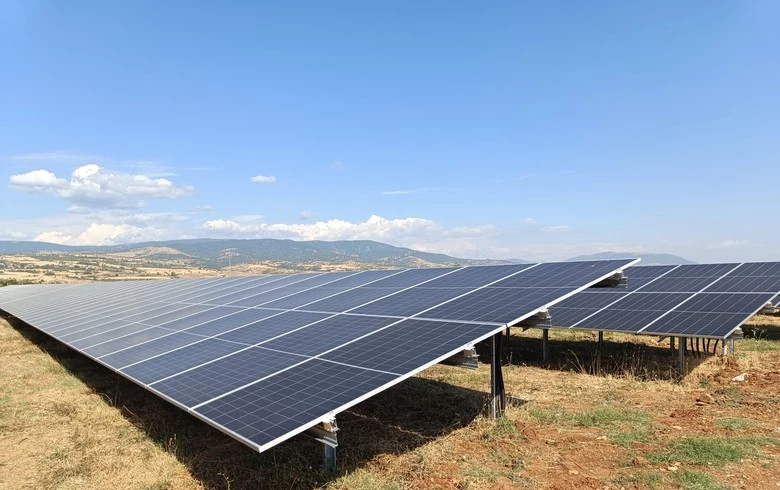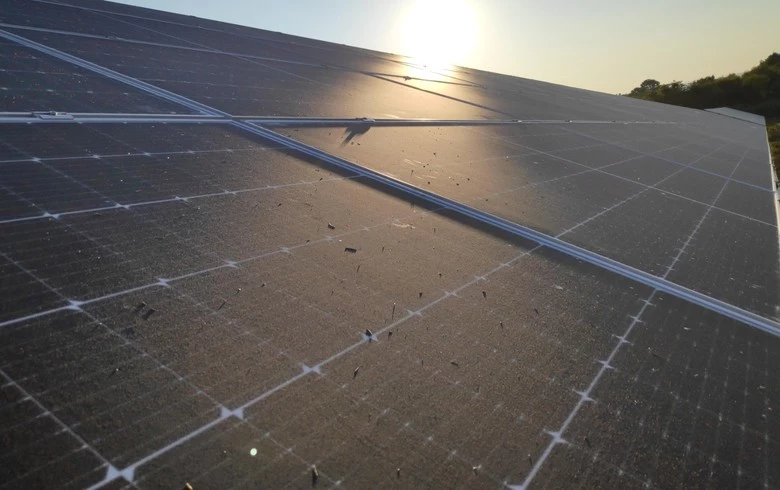Kenya is emerging as a global leader in climate technology, with startups driving sustainable solutions to address pressing environmental challenges like desertification, food insecurity, and renewable energy access.
In 2024 alone, Kenyan climate tech startups secured $248 million, accounting for 39% of the country’s total startup funding and 44% of funding since 2019, totalling approximately $1.5 billion.
From electric mobility to AI-driven environmental data platforms, these ventures are transforming Kenya’s green economy. But how can aspiring climate tech entrepreneurs tap into this funding boom?
This blog provides a structured, actionable guide to accessing funding, enriched with unique insights to help your startup stand out.
Why Kenyan Climate Tech Is Thriving
Kenya’s climate tech sector is uniquely positioned due to its alignment with national priorities like renewable energy and sustainable agriculture.
The country’s robust clean energy grid and supportive policies, such as the Digital Superhighway project and the proposed Startup Act, create a fertile environment for green innovation.
Unlike other African markets dominated by fintech, Kenya’s startup ecosystem leans heavily into climate and agritech, with 46% of 2024’s funding directed to cleantech.
Key players like BasiGo, M-KOPA, and Amini exemplify this trend. BasiGo’s electric buses, powered by a “Pay-As-You-Drive” financing model, raised significant capital by making green transport affordable.
M-KOPA democratises access to solar energy, while Amini uses AI and satellite technology to bridge Africa’s environmental data gap, securing $4 million in seed funding in 2023. These successes highlight the potential for scalable, impact-driven solutions.
READ ALSO:
Climate Tech Startups Across Africa Get $55M Funding Boost from Equator
Top Funding Opportunities for Kenyan Climate Tech Startups
Securing funding is a critical step for climate tech startups, but the sector’s long development timelines and high upfront costs can deter traditional investors. Below are the most viable funding avenues, tailored to Kenya’s ecosystem:
1. Climate Tech Accelerator Programs
- Pangea Accelerator’s Climate Tech Accelerator: This six-month program (February to August) offers Sh15 million to Sh40 million to 10 startups focusing on sustainable agriculture, circular economy, conservation technology, waste management, renewable energy, and nature-based solutions. Benefits include mentorship, technical expertise, and investor networks.
- Kenya Climate Innovation Centre (KCIC): KCIC provides incubation, capacity building, and financing for climate-focused SMEs. It has disbursed $8.6 million (KSh 1.25 billion) in grants and reached over 40 million people through campaigns. Their Green Tech Pitch Forum connects startups with investors.
- How to Apply: Visit kenyacic.org for KCIC’s application deadlines or pangeaaccelerator.com for Pangea’s program details. Prepare a pitch deck highlighting your solution, market traction, and environmental impact.
2. Venture Capital and Impact Investors
- Equator Fund: This Nairobi-based VC fund closed at $55 million in 2025, backing 15-18 seed and Series A startups in energy, agriculture, and mobility. Portfolio companies include Roam Electric, which raised $24 million for electric motorbikes and buses, and Downforce Technologies, focused on soil carbon measurement.
- International Finance Corporation (IFC): IFC’s $5 million investment in Equator, supported by South Korea’s Green Resilient and Innovative Development (GRID) program, targets early-stage green solutions.
- Tips for Success: Engage investors who understand climate tech’s long-term ROI. Highlight scalability and alignment with global emission reduction goals.
3. Grants and Development Finance
- Government and NGO Grants: KCIC’s Agribiz program, supported by the EU and Royal Danish Embassy, funds youth-led enterprises with $30,000 grants across Kenya, Tanzania, Rwanda, Ghana, and Nigeria. The World Food Programme (WFP) and World Wildlife Fund (WWF) also partner with accelerators like Pangea.
- Green Bonds and Alternative Funding: With venture capital often favouring quick returns, explore green bonds or impact investors like Sustainable Development Technology Canada or Breakthrough Energy Ventures for patient capital.
- How to Access: Check kenyacic.org for grant opportunities or contact Pangea for partnerships with global NGOs.
4. Global Competitions and Pitch Events
- ClimateLaunchPad: The world’s largest green business ideas competition, hosted in Kenya, offers startups a platform to pitch to investors.
- VERGE Competition: Trellis’s annual pitch event selects five finalists to present to business leaders, with winners featured on trellis.net.
- Strategy: Craft a compelling pitch deck with clear infographics, as seen in successful decks from startups like Sheru or Pledge, emphasising customer traction and environmental impact.
Standout Strategies to Secure Funding
To differentiate your startup in a competitive landscape, consider these unique approaches:
- Leverage Fintech Integration: Many successful Kenyan climate tech startups, like BasiGo and M-KOPA, integrate fintech to make green solutions affordable. For example, BasiGo’s CEO, Jit Bhattacharya, emphasises their “Pay-As-You-Drive” model as a key investor pitch point. Develop a financing model that reduces upfront costs for users.
- Focus on Local Challenges: Address Kenya-specific issues like drought, food loss, or plastic waste. HyaPak, for instance, converts water hyacinth into biodegradable alternatives to single-use plastics, tackling both plastic pollution and invasive species.
- Showcase Measurable Impact: Investors prioritise startups with proven traction. Farm to Feed (FTF) buys unsold vegetables from smallholder farmers at 50% of market price, reducing food loss while feeding vulnerable communities. Use data to demonstrate environmental and social ROI.
- Build Strategic Partnerships: Collaborate with organisations like Kenya Climate Ventures (KCV) or Octavia Carbon, which support carbon capture and renewable energy ventures. Partnerships enhance credibility and access to networks.
Challenges and How to Overcome Them
Despite the funding surge, Kenyan climate tech startups face hurdles:
- Early-Stage Funding Gap: Only 5% of seed-funded startups progress to Series A, compared to the global average. Solution: Target accelerators like Pangea or KCIC for seed funding and mentorship.
- High Upfront Costs: Technologies like carbon capture or renewable energy storage require significant capital. Solution: Explore debt financing, as seen in Kenya’s 34% of $382 million in debt funding for cleantech in 2024.
- Investor Scepticism: Climate tech’s long ROI timelines deter some VCs. Solution: Highlight co-benefits like job creation or community impact, as seen with GreenChar’s campaigns reaching 40 million people.
Success Stories to Inspire You
- Amini.ai: Raised $4 million in 2023 to use AI and satellite technology for environmental data, empowering farmers and supply chains.
- Roam Electric: Secured $24 million to scale electric motorbikes and buses, reducing transport emissions.
- Farm to Feed: Combats food loss by connecting smallholder farmers with vulnerable communities, demonstrating a scalable, impact-driven model.
READ ALSO:
BasiGo Accelerates Green Mobility with $42M Funding for East Africa’s Electric Bus Future
Take Action: Your Path to Funding
- Research and Apply: Visit kenyacic.org, pangeaaccelerator.com, or equator.vc to explore funding programs. Apply by preparing a pitch deck with a clear problem-solution fit and traction metrics.
- Network Actively: Attend events like KCIC’s Green Tech Pitch Forum or ClimateLaunchPad to connect with investors and mentors.
- Refine Your Model: Integrate fintech solutions or focus on local challenges to make your startup investor-ready.
- Stay Resilient: With only 4.8% of global VC funding going to climate tech in 2024, persistence and a compelling narrative are key.
Kenya’s Green Future Awaits
Kenya’s climate tech startups are not just solving local problems; they’re shaping a global blueprint for sustainability. With $638 million raised in 2024 and a supportive ecosystem, the opportunities for green innovation are immense.
By leveraging accelerators, VC funds, grants, and strategic partnerships, your startup can secure the funding needed to drive impact. Start today; your innovation could power Kenya’s sustainable future.
Ready to fund your climate tech startup? Share your journey in the comments.
Ronnie Paul is a seasoned writer and analyst with a prolific portfolio of over 1,000 published articles, specialising in fintech, cryptocurrency, climate change, and digital finance at Africa Digest News.






